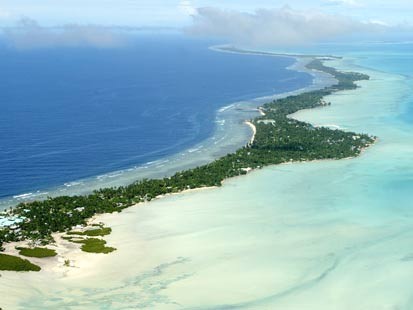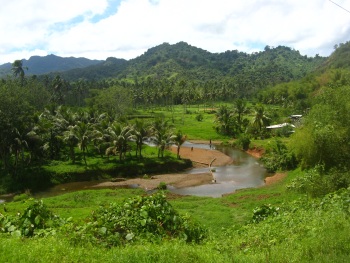Small islands are finding creative ways to navigate the changing seas that some climatologists are predicting over the next decades.
The remote and tiny Pacific nation of Kiribati has been making plans to buy up Fijian real estate over the last year, but it’s not, as many have speculated, to relocate all of its 100,000 residents. The country’s president, Anote Tong, recently spoke to Radio Australia about just why his government has been targeting land on Fiji’s second-largest island of Vanua Levu.
“We’ve been having these discussions in New Delhi for the past week, and everyone’s talking about what is happening to communities, and nobody truly understands that the degree of vulnerability is different from country to country,” he told the station. Kiribati’s prime area of vulnerability, according to President Tong, is in the area of food production.
He was visiting India for the Delhi Sustainable Development Summit 2013, where leaders from around the world have gathered to discuss the most pressing issues relating the developing world, including the impact of climate change. Other small island states also aired their concerns, including the Maldives and Seychelles.
In the case of Kiribati, erosion has swamped vast areas of the country, and storms have sent the sea splashing far inland, contaminating ponds and other sources of fresh water. Seawalls constructed to keep out the salty effluent are failing, and too small a solution for the scale of the problem.
The impact of salt water on farmland can be devastating, and combined with a shortage of water for irrigation, a serious food crisis is looming for Kiribati’s inhabitants. The World Bank and assorted NGO’s have stepped up with donations of emergency food aid, but the country needs a long-term solution rather than a quick fix.
This is where 6,000 tropical inland acres near Savusavu come in. The government has pegged the land as the new breadbasket of Kiribati, where livestock will have ample grazing land and staples like taro can supplement the fish and other marine resources that form the basis for Kiribatian diet.
At the Delhi Sustainable Development Summit this week, small island states like Kiribati had a rare opportunity to have their climate change fears heard. President Tong used his spotlight to issue a grave warning about his country’s future. “At this time, at this moment in time, we are at the very extreme end of the vulnerability scale,” he said. “We’re on the front line.”
Read more about this story: Abc.net.au




